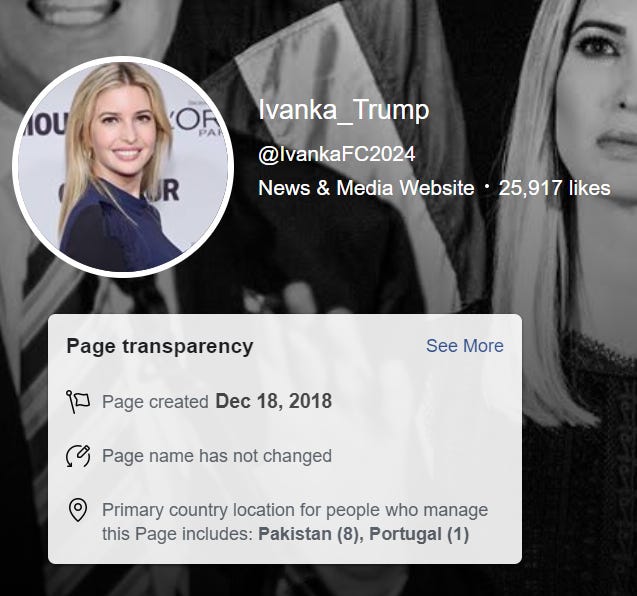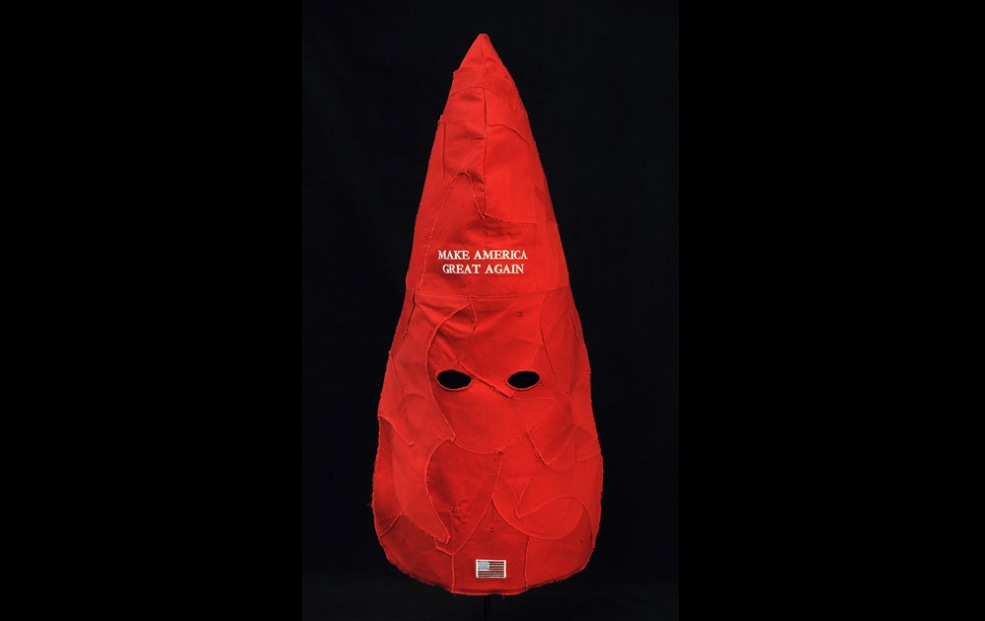10 million fake views
Doctored and deceptively edited videos of Speaker Nancy Pelosi (D-CA) — intended to portray her as drunk or incoherent — rocketed around major social media sites over the last few days. One version of the video was "slowed down to about 75% of its original speed and modified for pitch" giving Pelosi "unnaturally slow, slurred speech pattern." The videos were part of a coordinated effort by Trump, who tweeted one of the videos, and his allies to undermine Pelosi, the country's highest-ranking Democrat.
The fake and misleading videos have been viewed at least 10 million times across properties owned by Google, Facebook, and Twitter.
Of those three, only Google took decisive action, removing numerous videos of Pelosi from YouTube. (New copies, however, continue to be posted to YouTube.) Facebook acknowledged the videos were "false" but refused to remove them. (The company said it was taking unspecified actions to "limit" the reach of the Pelosi videos.) Twitter, Trump's social network of choice, took no action at all.
The uneven response is indicative of a broken information ecosystem that poses an existential threat to American democracy.
Facebook's official policy is to distribute doctored videos
Facebook has contracted with various third-party fact-checkers to review selected content posted to its website. It's a controversial program that, inexplicably, includes Tucker Carlson's website, The Daily Caller. But several of Facebook's fact-checkers determined that the Pelosi videos were "false."
But Monika Bickert, a VP at Facebook, said that did not mean the videos would be removed from the service. "We think it’s important for people to make their own informed choice for what to believe. Our job is to make sure we are getting them accurate information," Bickert told CNN.
In a separate statement, Facebook said the doctored Pelosi video was an example of "free expression."
There’s a tension here: we work hard to find the right balance between encouraging free expression and promoting a safe and authentic community, and we believe that reducing the distribution of inauthentic content strikes that balance.
Bickert insisted Facebook wasn't in the "news business" and therefore does not remove false information, only content that is "deemed a threat to public safety." It was an unusual claim for a company whose core product is called the "Newsfeed."
As a result of Facebook's decision, doctored and deceptively edited videos have racked up 3,562,134 million views on the platform as of Monday afternoon. Those videos have been shared 70,145 times and collected 53,468 likes, comments, and other reactions. Over 200,000 views of the videos have come in the last two days, when Facebook said it was "dramatically" reducing its distribution.
566,047 views came from a doctored video published to an unofficial Ivanka Trump page. The administrators of that page are located in Pakistan and Portugal.

Many popular Facebook pages also shared versions of the Pelosi videos hosted on YouTube, likely generating millions of additional views. Those videos have now been removed by Google.
Twitter's special rules for Donald Trump
Twitter has declined to comment on the Pelosi videos and has not removed them from its platform. A deceptively edited video of Pelosi posted by Trump with the caption "PELOSI STAMMERS THROUGH NEWS CONFERENCE" has collected over 6.15 million views.
The doctored version of the video was posted (and later deleted) by Trump's attorney, Rudy Giuliani. Although Giuliani eventually took the fake video down, he refused to acknowledge that it was doctored or apologize.
Previously, Twitter has said that it has a separate set of rules for Trump. According to Twitter CEO Jack Dorsey, no matter what Trump tweets, Twitter will not ban him from the service or remove any of his content.
Blocking a world leader from Twitter or removing their controversial Tweets would hide important information people should be able to see and debate. It would also not silence that leader, but it would certainly hamper necessary discussion around their words and actions.
Twitter denies that this policy is influenced by Trump's importance in drawing attention to the social network. "No one person’s account drives Twitter’s growth, or influences these decisions," the company said.
Trump recently invited Dorsey to the White House for a private meeting. Trump used the meeting to complain about his declining follower count.
Google steps up
Google was the one company to take real action against the doctored and deceptively edited Pelosi videos, removing them from YouTube.
"YouTube has clear policies that outline what content is not acceptable to post and we remove videos violating these policies when flagged to us. These videos violated our policies and have been removed," a Google spokesperson said.
Still, the way that YouTube is structured makes it difficult to stop the spread of these videos entirely. Despite the company's actions, new copies of the Pelosi videos are being uploaded and are currently available on YouTube.
A coordinated campaign
The Pelosi videos are not merely the work of internet trolls. They are part of a coordinated campaign to depict Pelosi as unstable and unfit for office.
In addition to tweeting one of the videos, Trump held a press conference and claimed that Pelosi is "not the same person. She's lost it," adding, "I think she's got a lot of problems."
Giuliani, Trump's lawyer, tweeted that in "the last couple of weeks" Pelosi has "been talking funny. I've noticed it, and a lot of other people have noticed it."
On Fox News, Laura Ingraham said Pelosi is "muttering and sputtering" and "doesn't seem well."
The deceptively edited video tweeted by Trump was produced by Fox Business.
Rerunning the Clinton playbook
Trump and his allies are trying to do to Pelosi exactly what they did to Clinton in 2016. Correspondence between Roger Stone, Trump's longtime political adviser, and a contact linked to Wikileaks discusses waging a disinformation campaign to suggest Clinton had a stroke and was too sick to be president. (The correspondence was revealed in Robert Mueller's indictment of Stone.)
Soon thereafter, "a barrage of claims about Clinton’s health started circulating in right-wing news outlets, including Fox News, the National Inquirer, and Infowars." The hashtag #HillaryHealth appeared frequently on Twitter. Trump started highlighting Clinton's health in his speeches, saying she "lacks the mental and physical stamina to take on ISIS." Deceptive videos began circulating on social media platforms, including one falsely suggesting Clinton had a seizure.
Clinton blasted Trump's similar efforts with Pelosi last week. "The president and his cronies have been running around spreading a doctored video of Nancy Pelosi. Now, it is sexist trash, but it is also a sign that Trump is running scared,” she said.
The double standard
Facebook is allowing the doctored videos of Pelosi to continue to circulate in the name of "free expression." But an artist who reconstructed a MAGA hat into a KKK hood was kicked off Facebook.

"I read a lot about people who are wearing these hats, and they say that they’re harmless, they’re innocuous, and this series is a way of calling them out," the artist, Kate Kretz, said.
When Kretz posted images of her work, Facebook took the pictures down saying they "violated community standards." Kretz appealed the decision, saying, "This is not hate speech. This is an art piece addressing hate speech."
Kretz was then banned from Facebook entirely.
Democracy hangs in the balance
This is more than a PR problem for social media companies. The basic functioning of democracy relies on voters learning about people running for office and then using that information to decide how to vote. If the information they receive is false, the system breaks down.
Today, powerful companies that control major communication networks -- Facebook and Twitter -- maintain they have no responsibility to stop deliberately inaccurate information from circulating. This position is not lost on Trump and his political operation, which frequently posts inaccurate information to social media, confident that there will be no consequences.
After false information circulated widely in the months leading up to the 2016 election, social media companies promised to better in 2020. Here is what Facebook Vice President Adam Mosseri said in April 2017:
We know people want to see accurate information on Facebook – and so do we.
False news is harmful to our community, it makes the world less informed, and it erodes trust.
It's not a new phenomenon, and all of us — tech companies, media companies, newsrooms, teachers — have a responsibility to do our part in addressing it.
Similarly, in September 2018, Twitter CEO Jack Dorsey said that he was committed to making Twitter home to "more healthy debate" by reducing "manipulation" on the platform.
Twitter’s health is measured by how we help encourage more healthy debate, conversations, and critical thinking. Conversely, abuse, malicious automation, and manipulation detracts from the health of our platform. We are committed to hold ourselves publicly accountable towards progress of our health initiative.
With less than 18 months before the next presidential election, things are as bad, or worse, than ever.
Thanks for reading!




Among all the crap things going on, few things are more dangerous than all the ways legitimate news and democracy are being shredded and thrown in the trash.
Thank you for your work here in making it crystal-clear what reprehensible bad actors FB and Twitter are.
It worked before, it’s working now. Why WOULDN'T they keep doing it?